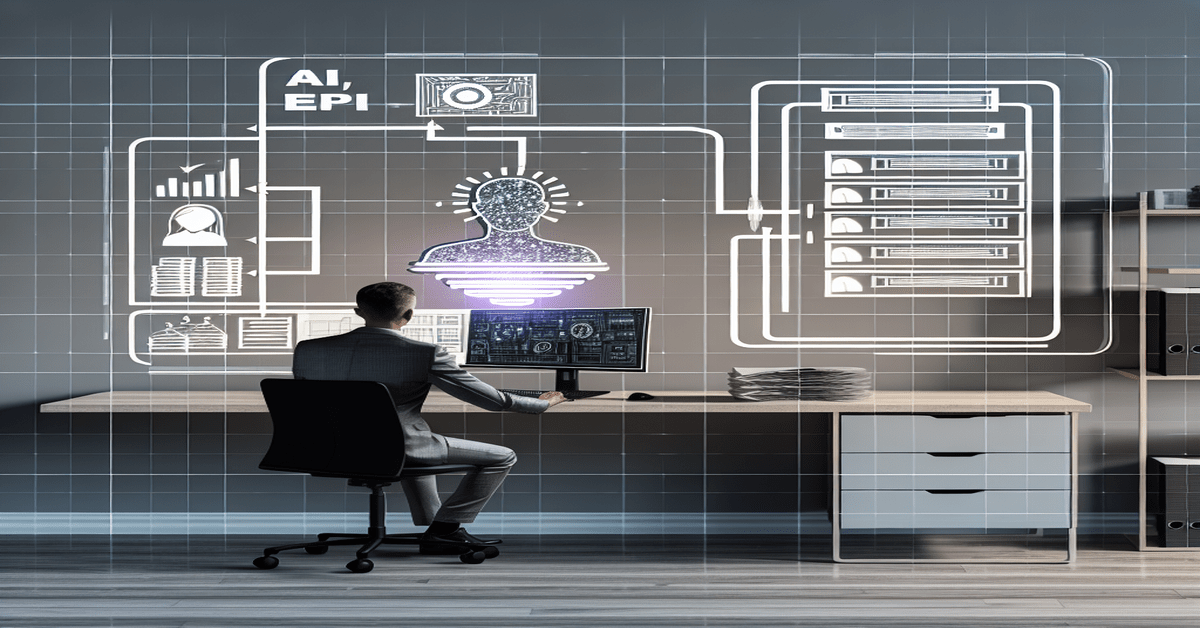AI-Driven ERP: Revolutionizing Business Operations and Decision-Making
In today’s fast-paced business landscape, organizations are constantly seeking ways to optimize their operations, streamline processes, and make data-driven decisions. The integration of Artificial Intelligence (AI) into Enterprise Resource Planning (ERP) systems is revolutionizing the way businesses operate, enabling them to achieve unprecedented levels of efficiency and gain a competitive edge.
The Power of AI in ERP Systems
AI is transforming ERP systems by leveraging the power of **machine learning (ML) algorithms** and **data analytics**. This integration allows ERP systems to automate routine tasks, provide predictive insights, and enhance decision-making capabilities.
One of the most significant benefits of AI-driven ERP is the automation of mundane and repetitive tasks. By leveraging AI, businesses can automate processes such as invoice processing, inventory management, and order fulfillment. This automation frees up valuable resources, allowing employees to focus on more strategic initiatives that drive business growth[2][5].
Moreover, AI-powered ERP systems have the ability to analyze vast amounts of data from various sources, identifying patterns and trends that may not be immediately apparent to human analysts. This predictive capability enables businesses to anticipate market shifts, customer preferences, and potential risks, allowing them to adjust their strategies accordingly[2][3].
AI also enhances decision-making capabilities by providing real-time insights and recommendations based on data analysis. By processing information from multiple sources, including financial data, customer interactions, and supply chain metrics, AI-driven ERP systems offer a holistic view of the business, enabling leaders to make informed decisions that drive growth and profitability[3][5].
The Benefits of Embracing AI in ERP
The integration of AI into ERP systems offers numerous benefits for businesses across industries. One of the most significant advantages is the potential for substantial efficiency gains. Studies have shown that businesses can achieve 30 to 40% efficiency improvements by leveraging AI-enhanced ERP systems[1].
AI-driven ERP systems are also highly scalable, allowing businesses to grow and expand without the need for additional resource investments. As the organization’s data volume increases, AI algorithms can adapt and continue to provide accurate insights and recommendations, supporting business growth and agility[5].
Cost efficiency is another key benefit of AI-powered ERP. By analyzing vast amounts of data, AI can identify inefficiencies, bottlenecks, and areas for improvement within the organization. This insight allows businesses to optimize their processes, reduce waste, and implement cost-saving measures, ultimately leading to increased profitability[5].
AI-driven ERP systems also have the potential to revolutionize customer service. By analyzing customer behavior, preferences, and interactions, AI can provide personalized recommendations and proactive support. This level of personalization enhances customer satisfaction, loyalty, and ultimately, revenue growth[5].
In the realm of manufacturing and supply chain management, AI-powered ERP systems offer predictive maintenance capabilities. By analyzing data from sensors and machines, AI can predict potential equipment failures and schedule maintenance proactively. This approach minimizes downtime, reduces maintenance costs, and ensures optimal production efficiency[5].
Navigating the Challenges and Embracing the Future
While the benefits of AI-driven ERP are significant, implementing these systems comes with its own set of challenges. One of the primary hurdles is the need to modernize legacy ERP systems to accommodate AI innovation. Businesses must invest in upgrading their infrastructure, integrating new technologies, and ensuring data quality and security[4].
As AI continues to evolve, the future of ERP systems looks promising. Industry experts predict an increased adoption of AI for digital transformation initiatives, with businesses leveraging AI to optimize operations, improve decision-making, and gain a competitive advantage[1][2].
The integration of AI into ERP systems is not just a trend; it is a necessary step for businesses to remain competitive in the digital age. By embracing AI-driven ERP, organizations can unlock new levels of efficiency, agility, and innovation, positioning themselves for long-term success.
As you embark on your AI-driven ERP journey, it is essential to partner with experienced professionals who can guide you through the implementation process, ensuring a seamless transition and maximizing the benefits of this transformative technology.
#AI #ERP #DigitalTransformation #BusinessEfficiency #DataDrivenDecisions
-> Original article and inspiration provided by ReviewAgent.aiArundhati Kumar
-> Connect with one of our AI Strategists today at ReviewAgent.ai


